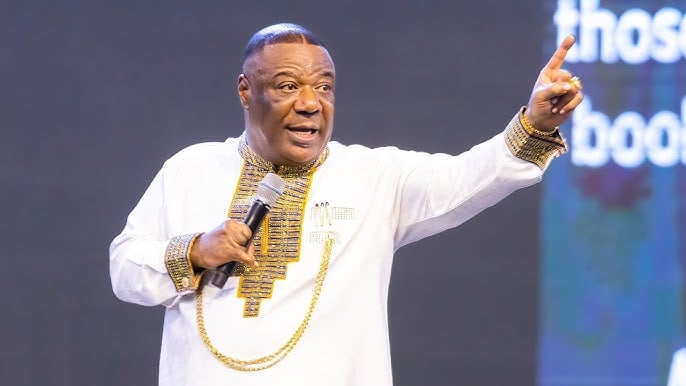Archbishop Nicholas Duncan-Williams, the General Overseer of Action Chapel International, recently conducted a powerful prayer session in anticipation of Ghana’s upcoming general elections scheduled for December 7, 2024. The prayer focused on seeking divine intervention to thwart any attempts at electoral manipulation or rigging. In a widely circulated video, the Archbishop expressed his concerns about the integrity of the electoral process and issued a fervent appeal to God, asking for the exposure and incapacitation of individuals or political parties that may be plotting to undermine the elections. This call to prayer intensified as he urged the congregation to unite in seeking a leader who prioritizes the well-being of the nation over personal ambitions and party interests.
Duncan-Williams’ prayer was marked by a passionate lamentation for a leadership that embodies genuine love for Ghana. He voiced a deep desire for leaders who would prioritize the country’s welfare over their political agendas. His evocative pleas underscored the urgency of divine involvement in the electoral process. He explicitly stated the need for God to intervene, reinforcing the idea that without divine oversight, the electoral process could be subject to manipulation. By invoking the need for God to step in, he framed the electoral scene as a battleground requiring spiritual vigilance and divine justice.
During the prayer session, Duncan-Williams dramatically called upon spiritual forces to thwart malevolent intentions related to the election. His fervent declarations urged the angel of death to act against those plotting evil against the electoral process. His rhetoric aimed to galvanize the prayers of the congregation, asking them to join him in invoking a protective spiritual presence over the elections. He urged everyone to pray for the thwarting of any evil plans and indicated that divine retribution should be directed towards anyone who seeks to manipulate the outcomes. This intensity in his prayers demonstrates his deep commitment to ensuring the sanctity of the democratic process in Ghana.
Furthermore, the Archbishop’s remarks highlighted the urgency for collective spiritual action among the people of Ghana. He called on congregants to actively engage in prayer, asking them to intercede for the nation and invoke God’s presence into the electoral equation. His message stressed that the power of prayer could yield tangible results, urging the faithful to be proactive in seeking divine favor and protection during the electoral period. This call for engagement represents a broader cultural call to action where faith and civic responsibility intersect.
Additionally, Duncan-Williams articulated a clear vision for the future of Ghana, which includes leaders who are committed to the greater good of the nation. Through his prayers, he illustrated a yearning for a political landscape that prioritizes national well-being over self-serving interests. The Archbishop’s call for accountability, ethical governance, and genuine love for the country reflects a desire for a transformation in the political dynamics of Ghana ahead of the elections. His fervent prayers serve as a rallying cry for citizens to remain vigilant during this crucial period in their democracy.
In conclusion, Archbishop Nicholas Duncan-Williams’ prayer session prior to Ghana’s general elections has resonated significantly with many, highlighting a profound concern for the integrity of the electoral process. His passionate calls to God for intervention against electoral malfeasance underscore the importance of spiritual vigilance in political matters. By advocating for leaders who prioritize national interests over personal gain, Duncan-Williams not only addresses the immediate concerns regarding the elections but also lays the groundwork for a hopeful future led by ethical and committed leaders. The emphasis on collective prayer reflects a desire for unity among Ghanaians as they navigate this pivotal moment in their democratic journey, determining the course of their nation’s future.


